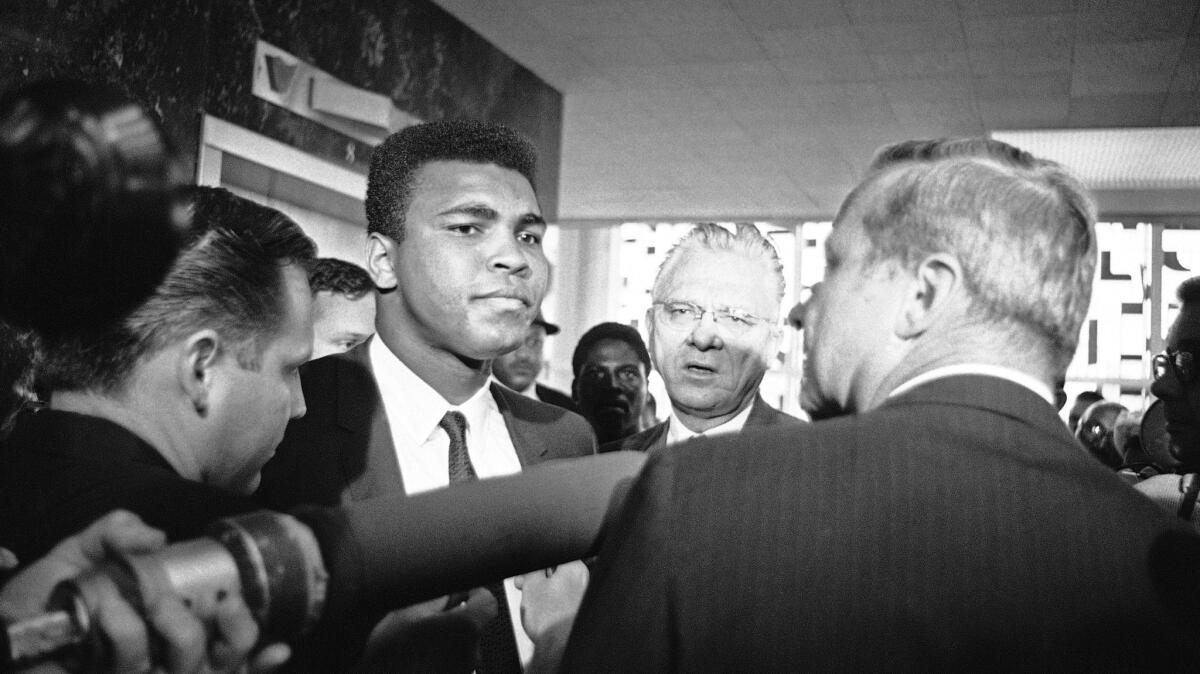Why Muhammad Ali’s protests were so subversive

- Share via
To the editor: In these crass times it may strain belief to read that Muhammad Ali’s fulmination, “God damn the white man’s money,”could have been deemed outrageous sacrilege in 1967. But that era’s pop music confirms such prissy predilections. (“Don’t remember Muhammad Ali as a sanctified sports hero. He was a powerful, dangerous political force,” Opinion, June 4)
In 1961, Jimmy Dean’s epic hit, “Big Bad John,” ended with, “At the bottom of this mine lies a hell of a man.” But many deemed the H-word profane, so Dean recorded a sanitized version ending with “lies a big, big man.”
A few years later, most radio stations didn’t dare play Judy Collins’ 1968 gem, “Someday Soon,” because she sang, “He loves his damned old rodeo.” Many listeners disdained the D-word.
Small wonder that Ali’s outburst, while conveying an eminently valid point, provoked such widespread condemnation in that priggish era.
Edward Alston, Santa Maria
..
To the editor: Ali won an Olympic gold medal for the United States, came back home, ventured into a Louisville restaurant wearing his medal and was greeted with, “We don’t serve niggers.” And yet he’s expected to go fight in a trumped up military escapade in Vietnam?
One letter writer’s comments about the Army finding someone to take his place are misguided. Ali recognized who his enemies were and rightly decided to sit their war out.
If only more young men had followed his lead on the war.
Kyle von Daden, Studio City
Follow the Opinion section on Twitter @latimesopinion and Facebook
More to Read
A cure for the common opinion
Get thought-provoking perspectives with our weekly newsletter.
You may occasionally receive promotional content from the Los Angeles Times.










